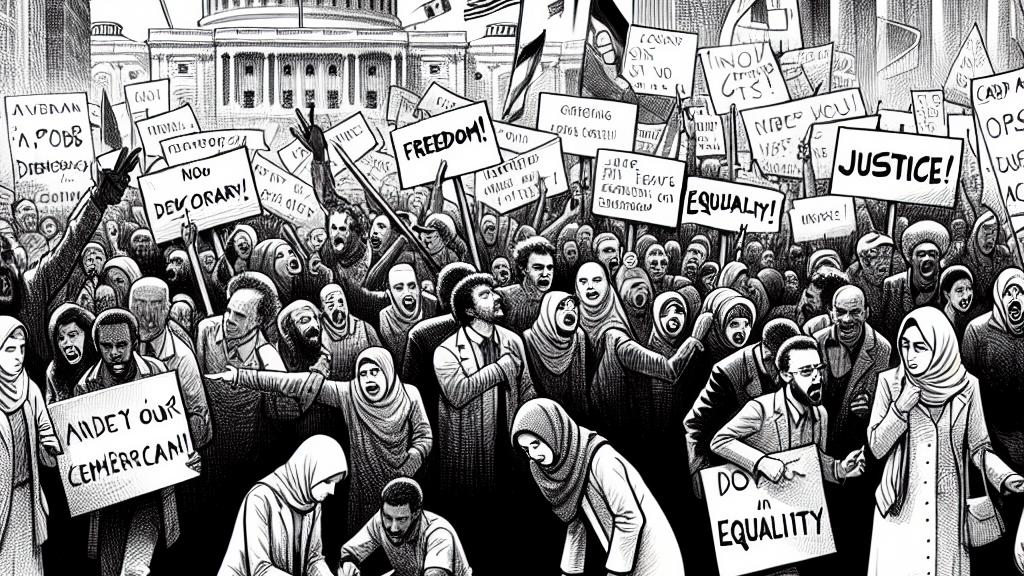Bangladesh in Turmoil: Prime Minister Flees as Military Takes Charge!
Overview
- Prime Minister Sheikh Hasina resigns amid escalating protests over job quotas and flees to India.
- Military intervention leads to the declaration of a temporary government amidst widespread unrest.
- Protests against the government have resulted in hundreds of casualties, raising alarming human rights concerns.

Escalating Political Turmoil
Bangladesh is grappling with a severe political crisis as Prime Minister Sheikh Hasina announced her resignation on August 5, 2024, and fled to India, igniting waves of protest across the nation. The unrest originated from discontent over a controversial job quota system, which disproportionately favored a specific group linked to former war veterans, causing widespread frustration among citizens, especially students. The protests have intensified due to economic issues, including soaring inflation and scarcity of good jobs. In a shocking turn of events, at least 280 people have died in recent clashes, dramatically shifting the public's perception of Hasina's administration and raising the specter of a power vacuum in the country.
Military Assumes Control Amid Unrest
In response to the escalating chaos, the military declared the formation of a temporary government, led by General Wakel uz Zaman, promising a restoration of order and a commitment to addressing public demands. This signifies a major shift in Bangladesh's political dynamics. The military's involvement has raised concerns among citizens about the potential return to authoritarian rule, given the military's historical role in governance during crises. As the military seeks to navigate through this tumultuous period, it faces the immense challenge of balancing order with the need for democratic processes, all while public confidence in governance continues to wane.
Human Rights Violations and the Call for Change
The violent clashes between protesters and security forces have drawn significant international attention, with human rights organizations rallying for investigations into alleged abuses. Eyewitness accounts report the use of excessive force, including live ammunition against unarmed demonstrators, prompting outrage from groups like Amnesty International. The United Nations has intervened by calling for calm and urging the government and military to respect citizens' rights to peaceful protest. As protests continue, a national dialogue surrounding the need for free and fair elections has emerged, highlighting a push from the populace for transparency, accountability, and a political environment that truly reflects their aspirations for a democratic future.

Loading...